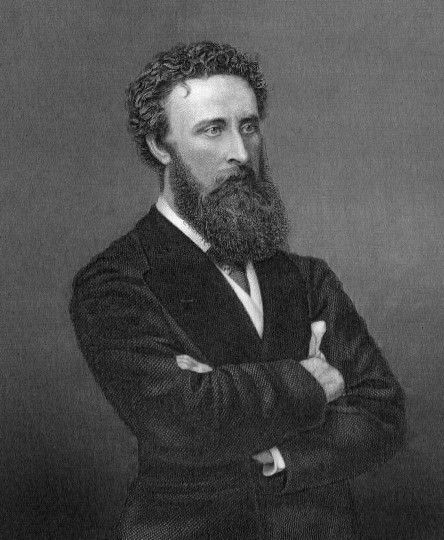“Only by knowledge of that which is not thyself, shall thyself be learned.”
"Γνωθι Σεαυτον" ("Know Thyself"), in The Poetical Works of Owen Meredith (1867), Vol. I, p. 247.
Edward Robert Bulwer-Lytton, 1. hrabě z Lyttonu byl britský diplomat a státník. Dlouhodobě působil ve službách britského ministerstva zahraničí a zastával nižší diplomatické posty ve většině evropských zemí, nakonec byl velvyslancem ve Francii. Mezitím byl místokrálem v Indii . V roce 1880 získal titul hraběte, uplatnil se také jako spisovatel. Wikipedia

“Only by knowledge of that which is not thyself, shall thyself be learned.”
"Γνωθι Σεαυτον" ("Know Thyself"), in The Poetical Works of Owen Meredith (1867), Vol. I, p. 247.
Changes, reported in Bartlett's Familiar Quotations, 10th ed. (1919).
“The things which must be must be for the best.”
Imperfection, reported in Bartlett's Familiar Quotations, 10th ed. (1919).
“The world is a nettle; disturb it, it stings.
Grasp it firmly, it stings not.”
Part iii, canto ii. Quoted by Walt Whitman in Roaming in Thought.
Lucile (1860)
“Genius does what it must, talent does what it can.”
Last Words, reported in Bartlett's Familiar Quotations, 10th ed. (1919).
“Oh, moment of sweet peril, perilous sweet! When woman joins herself to man.”
The Wanderer, Prologue, Stanza 1, reported in Bartlett's Familiar Quotations, 10th ed. (1919).
Part i, canto ii.
Lucile (1860)
“Art is Nature made by Man
To Man the interpreter of God.”
The Artist, reported in Bartlett's Familiar Quotations, 10th ed. (1919).
The Wanderer, Book iv, Stanza 9, reported in Bartlett's Familiar Quotations, 10th ed. (1919).
“Those true eyes
Too pure and too honest in aught to disguise
The sweet soul shining through them.”
Part ii, canto ii. Compare: "Ils sont si transparents qu’ils laissent voir votre âme" (translated: Eyes so transparent that through them the soul is seen), Theophile Gautier, The Two Beautiful Eyes.
Lucile (1860)
Part ii, canto ii.
Lucile (1860)
Part ii, canto vi.
Lucile (1860)
“The unknown
Is life to love, religion, poetry.”
Zdroj: The Wanderer (1859), Prologue, Part i, stanza xxi, p. 8.